Tech
WhatsApp Wins $167 Million Lawsuit as NSO Spyware Secrets Are Exposed in Courtroom Drama
From zero-click hacks to FBI demos and Apple office neighbors, the WhatsApp vs. NSO Group trial uncovers a chilling world of state-sponsored surveillance and high-stakes espionage
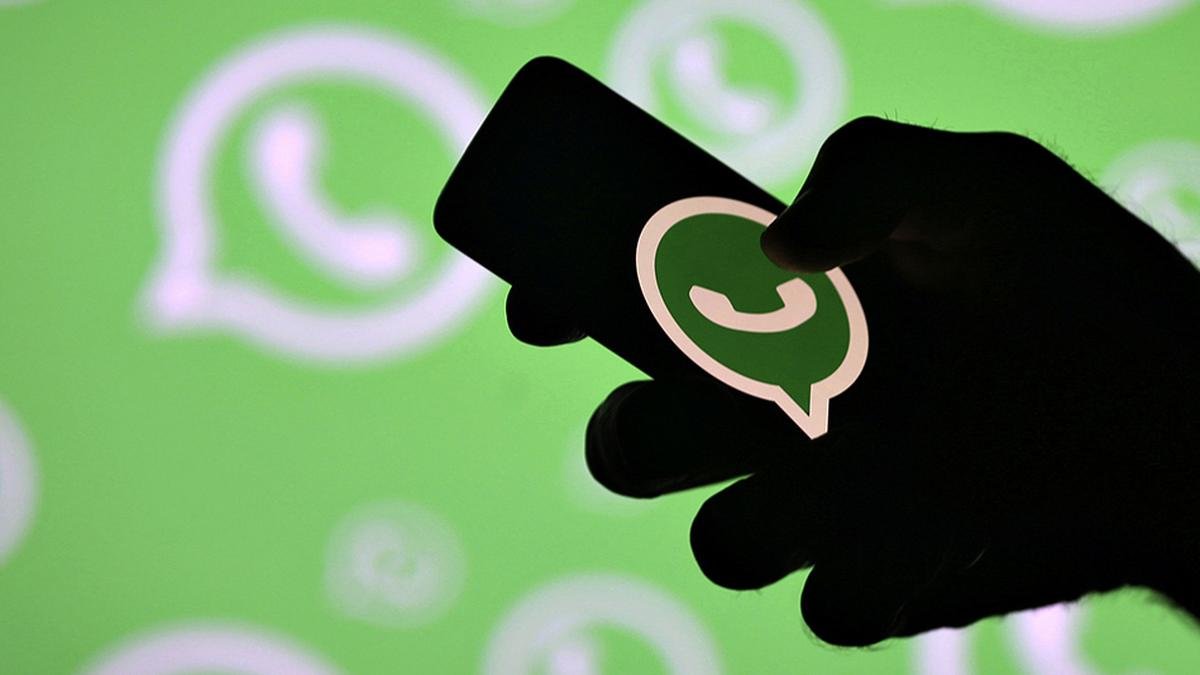
In a landmark courtroom decision that has shaken the surveillance industry, WhatsApp has secured a $167 million victory over NSO Group, the notorious Israeli spyware developer behind the Pegasus hacking tool. The jury’s decision not only marks a win for Meta’s encrypted messaging platform, but it also pulls back the curtain on the shadowy ecosystem of government-backed cyber-espionage that has targeted thousands across the globe—including Americans.
This trial, five years in the making, originated from a 2019 lawsuit by WhatsApp, which alleged that NSO had exploited a vulnerability in its voice-calling feature to inject spyware onto over 1,400 user devices. The attacks required no user interaction—a “zero-click” exploit that essentially weaponized a missed call.
According to courtroom testimony, NSO built a custom system—the WhatsApp Installation Server—designed to impersonate legitimate network activity and trick phones into downloading Pegasus spyware. All it needed? A target’s phone number.
But the revelations didn’t stop at technical details. In a surprising admission, NSO’s VP of R&D Tamir Gazneli confirmed that the spyware was still being used against WhatsApp users well after the lawsuit began, with codenames like “Erised,” “Eden,” and “Heaven” continuing into 2020 under the internal project name “Hummingbird.”
Even more troubling, NSO confirmed what had long been denied: Pegasus was used to target a U.S. phone number—allegedly as a demonstration for the FBI, raising serious questions about the spyware’s reach and regulatory oversight.
The courtroom also offered a rare glimpse into NSO’s operations and clientele. Its customers include governments in Mexico, Saudi Arabia, and Uzbekistan, and they reportedly paid between $7 million and $61 million for spyware access, depending on the scale and covert capabilities involved. NSO executives revealed that the Pegasus system chooses hacking methods automatically, with customers simply selecting their targets—not how to breach them.
Ironically, NSO’s headquarters in Herzliya, Israel, shares a building with Apple, whose devices have been prime targets of Pegasus. “We share the same elevator,” joked CEO Yaron Shohat, in a detail that highlights just how surreal the tech surveillance world has become.
But beneath the courtroom drama lies a darker financial reality. Documents revealed that NSO is hemorrhaging cash, posting $21 million in losses over two years and burning through $10 million monthly, mostly on salaries and R&D. With less than $5 million left in the bank, Shohat pleaded with the court: “To be honest, I don’t think we’re able to pay anything.”
While NSO might be financially drowning, the implications of this case reach far beyond the courtroom. The revelations surrounding Pegasus spyware, FBI involvement, and cloud-based impersonation tactics have raised fresh alarms—especially as the White House investigates the recent hacking of Trump’s chief of staff Susie Wiles, a breach that involved AI voice cloning and unauthorized contact access.
As cyberweapons get cheaper and smarter, and as nation-states increasingly turn to private firms for offensive tools, the stakes are growing. For now, WhatsApp’s courtroom triumph offers a rare moment of accountability—but the deeper question remains: Can our privacy survive the age of digital surveillance-for-hire?
Tech
OpenAI’s new Sora app flooded with terrifying Sam Altman deepfakes and bizarre AI videos…
From pigs scrolling TikTok to Pokémon lawsuits, OpenAI’s Sora turns into a surreal deepfake playground less than 24 hours after launch.

When OpenAI unveiled its new social media app Sora, it promised a bold new way to experience AI-generated video. What early users received, however, feels more like a nightmarish fever dream starring none other than Sam Altman himself.
Within hours of launch, the invite-only app was overrun with uncanny deepfakes of the OpenAI CEO. In one viral clip, Altman appears inside a factory farm packed with pink pigs, each pen equipped with a smartphone streaming vertical videos. Staring directly at the camera, the AI-generated Altman asks chillingly: “Are my piggies enjoying their slop?”
ALSO READ : Terence Stamp’s Final Curtain Call Leaves Fans in Tears as Secrets from His Past Resurface
Moments later, the feed shifts to another surreal scene — Altman standing in a field of Pokémon, from Pikachu to Bulbasaur, casually remarking: “I hope Nintendo doesn’t sue us.”
The internet’s new obsession: Altman everywhere
The bizarre trend didn’t stop there. Users generated videos of “Altman” pouring Starbucks lattes for Pikachu and Eric Cartman, yelling at customers behind a McDonald’s counter, or even running away from police after stealing Nvidia GPUs from a Target store.
The app itself cheekily acknowledges the chaos. In some clips, Altman’s AI double announces, “This content may violate our guardrails concerning third-party likeness,” before bursting into hysterical laughter — as if mocking the very warnings the app is designed to enforce.
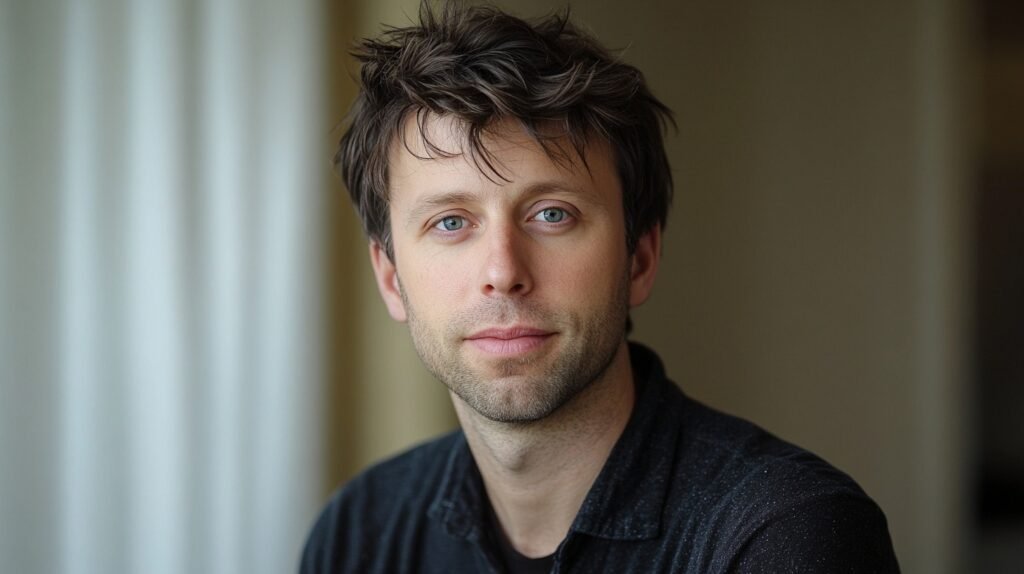
Copyright chaos on display
Sora is already under fire for how it handles copyright. Unlike most platforms where creators must opt in to allow their content to be used, OpenAI has flipped the model: copyright holders must opt out to prevent their works from appearing. Legal experts say this raises troubling questions, especially when videos depict characters like Naruto, Mario, or even Pikachu performing adult or absurd actions.
“People are pushing Sora’s boundaries just to see how far it will go,” one user posted on X, pointing to clips of Mario smoking weed or Pikachu performing ASMR.
Why Sora feels different
What sets Sora apart from other AI apps, including the Meta AI feed, is the realism. OpenAI has fine-tuned its video generator to obey the laws of physics more convincingly, making scenes look disturbingly authentic. The more convincing these deepfakes become, the greater the risk they’ll be used for misinformation, bullying, or worse.
Sora is, at its core, a deepfake generator with social features. Upon joining, users are prompted to create a “cameo” by recording biometric data — turning their heads, reading numbers aloud, and effectively handing the app a digital replica of their likeness. Users can then choose who’s allowed to generate content with their cameo: “only me,” “people I approve,” “mutuals,” or “everyone.”
A glimpse into the future?
The frenzy around Altman deepfakes highlights both the allure and the dangers of this technology. On one hand, it showcases Sora’s jaw-dropping realism and creative potential. On the other, it raises urgent ethical questions: What happens when hyper-realistic AI versions of public figures — or private individuals — flood the internet without consent?
For now, Sora is invite-only, but if this is the preview, the public launch could be even more chaotic. Whether it becomes the next TikTok of AI or collapses under controversy, one thing is certain: Sam Altman will never look at a Target store the same way again.
Tech
Google celebrates 27th birthday as a spelling mistake turns into the world’s biggest search engine
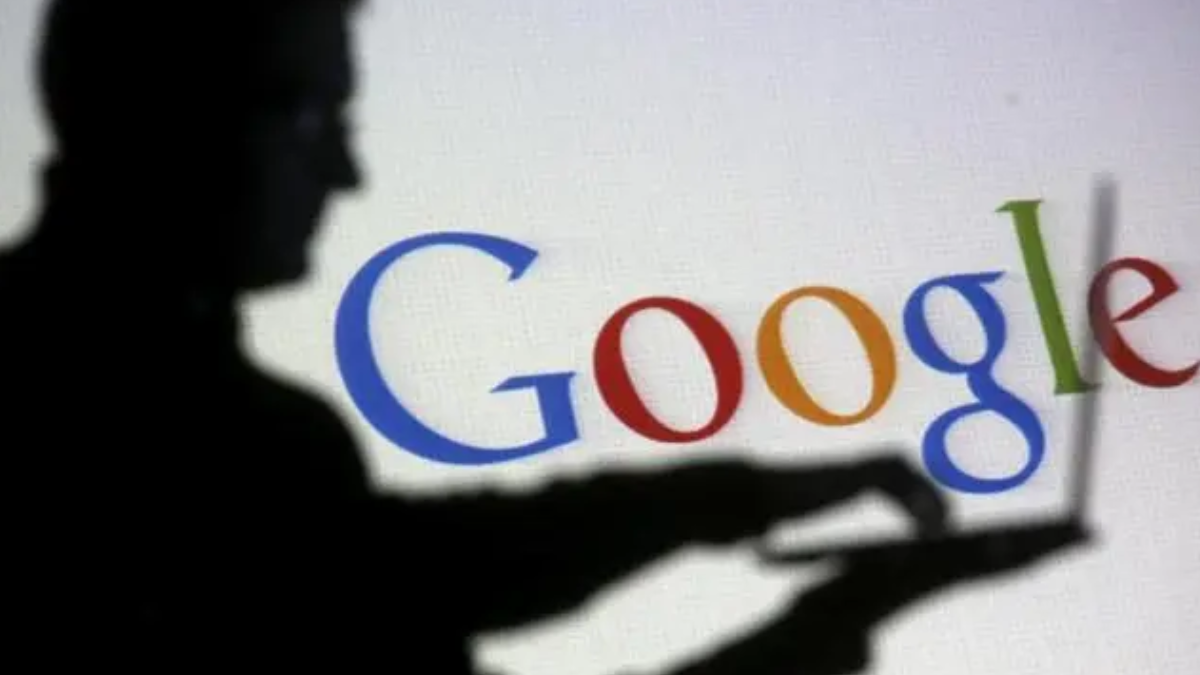
Almost every internet user around the globe interacts with Google daily — searching, mapping, emailing, or watching videos on YouTube, another Google-owned platform. But on its 27th birthday, celebrated on September 27, many still wonder: what does the name “Google” really mean, and how did it come to define the digital age?
The meaning behind Google
The name “Google” is actually derived from the mathematical term Googol — the number 1 followed by 100 zeros (10¹⁰⁰). The word was first coined by Milton Sirotta, the young nephew of American mathematician Edward Kasner, as a playful way to describe unimaginably large numbers.
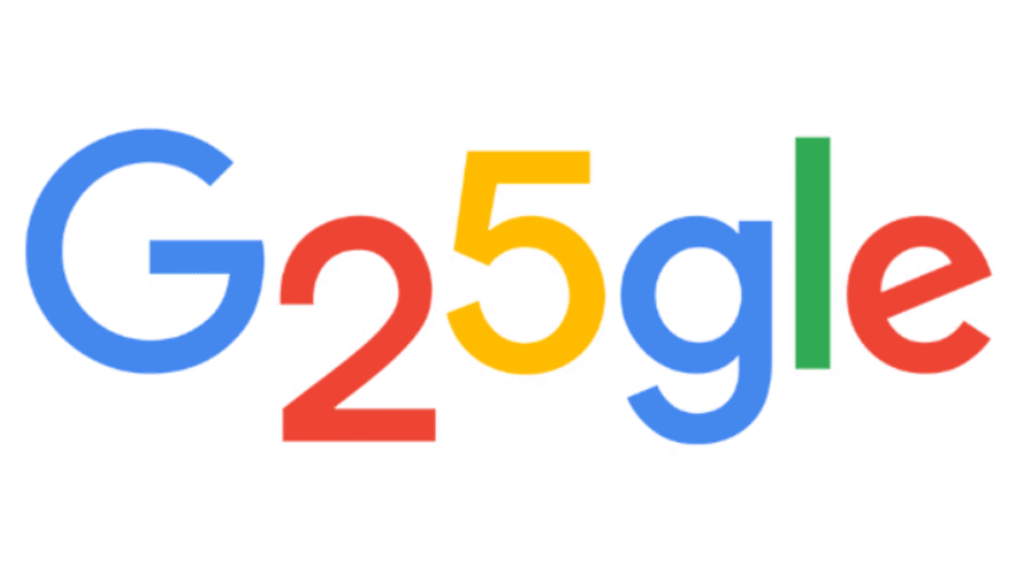
For founders Larry Page and Sergey Brin, two Stanford University Ph.D. students in the late 1990s, the term reflected their ambition: to organize a seemingly infinite amount of information on the internet and make it accessible to everyone.
From BackRub to Google
Google wasn’t always Google. In 1996, Brin and Page created a search engine prototype and named it BackRub, referencing the system’s ability to analyze “backlinks” on web pages. But by 1997, the pair realized the name lacked the ambition and gravitas their project deserved.
Brainstorming led them to consider “Googolplex” — a number that is 1 followed by a Googol of zeros. Eventually, they settled on the shorter Googol. But fate, and a small spelling error, had other plans.
A typo that changed the internet
During the process of registering the website, graduate student Sean Anderson accidentally typed “Google” instead of “Googol” while checking domain availability. To everyone’s surprise, google.com was available. Larry Page immediately approved, and within hours the domain was officially registered.

What was once a typo became one of the most recognizable names — and companies — in human history.
The rise of a global giant
Google officially incorporated on September 4, 1998, though the company celebrates its birthday on September 27, marking key internal milestones. What started in a garage in Menlo Park, California, grew into a powerhouse that now dominates global search, advertising, cloud computing, and mobile operating systems through Android.
READ MORE : Google Gemini AI Prompts for Men Spark 7 Stunning Retro and Cinematic Photo Trends
In 2015, Google restructured under a new parent company, Alphabet Inc., with Indian-born executive Sundar Pichai appointed as CEO of both Google and Alphabet. Brin and Page remain influential insiders with significant voting power.
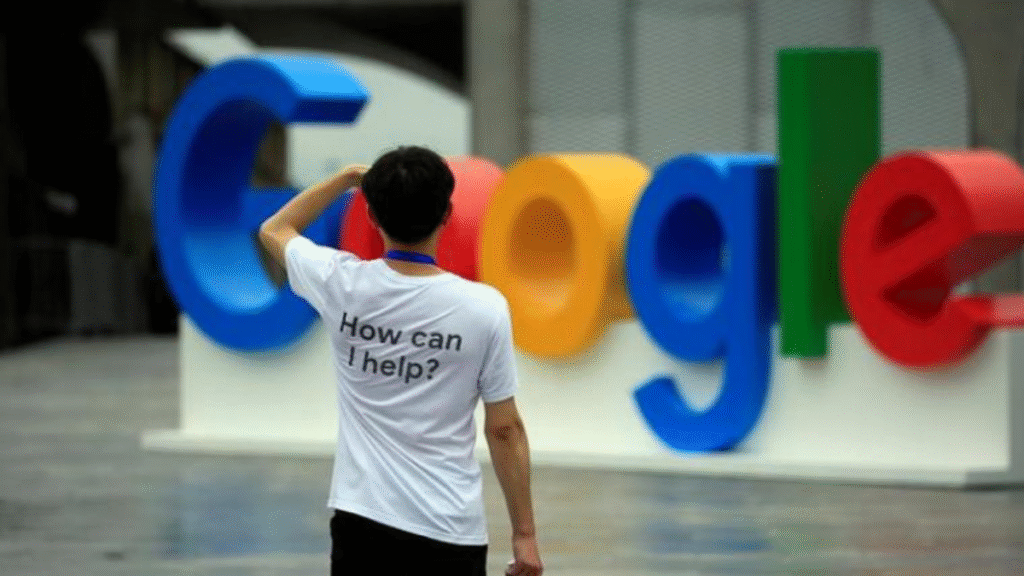
Today, Google processes over 8.5 billion searches per day, owns a portfolio of services including Gmail, Maps, and Drive, and is at the forefront of artificial intelligence with products like Gemini.
A name that became a verb
The misspelled name did more than build a brand — it became a verb. To “Google” something is now synonymous with searching for information online, a linguistic achievement that underscores its cultural dominance.
From a typo on a university campus to the backbone of the digital age, Google’s story shows how small accidents can shape history. On its 27th birthday, the company remains a giant not just of technology, but of modern language and daily life.
Tech
iPhone 17 Air Launch Shocks Fans with 10 Powerful Features and Stunning Price in USA
Apple’s thinnest smartphone ever brings a 48MP Fusion camera, A19 Pro chip, recycled titanium body, and a major focus on Apple Intelligence.
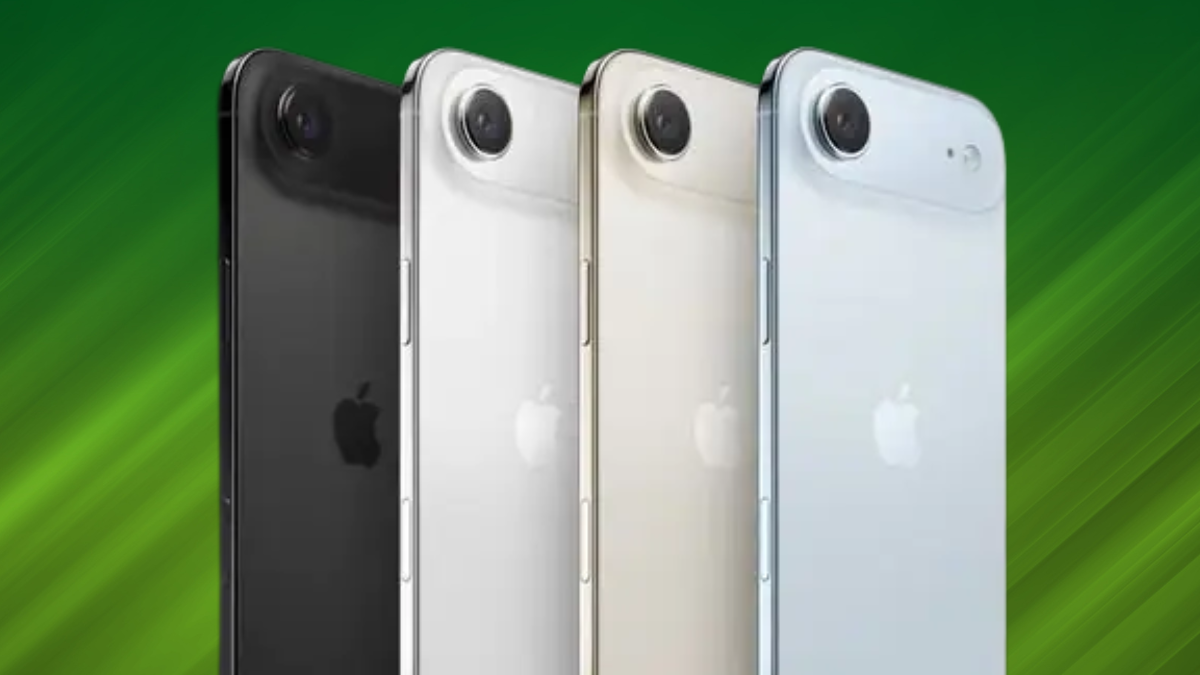
The iPhone 17 Air has finally arrived, and it is already being called one of the most stylish yet powerful smartphones ever designed by Apple. Launched as part of the 2025 lineup, this device combines ultra-slim design with groundbreaking technology, promising to redefine how users experience photography, performance, and intelligence on a phone.
With a 6.5-inch Super Retina XDR display, 48MP Fusion camera system, and the all-new A19 Pro chip, the iPhone 17 Air has been engineered for speed, durability, and creativity. Apple has also doubled down on sustainability, using 80% recycled titanium in its construction while still delivering premium aesthetics in four beautiful colors.
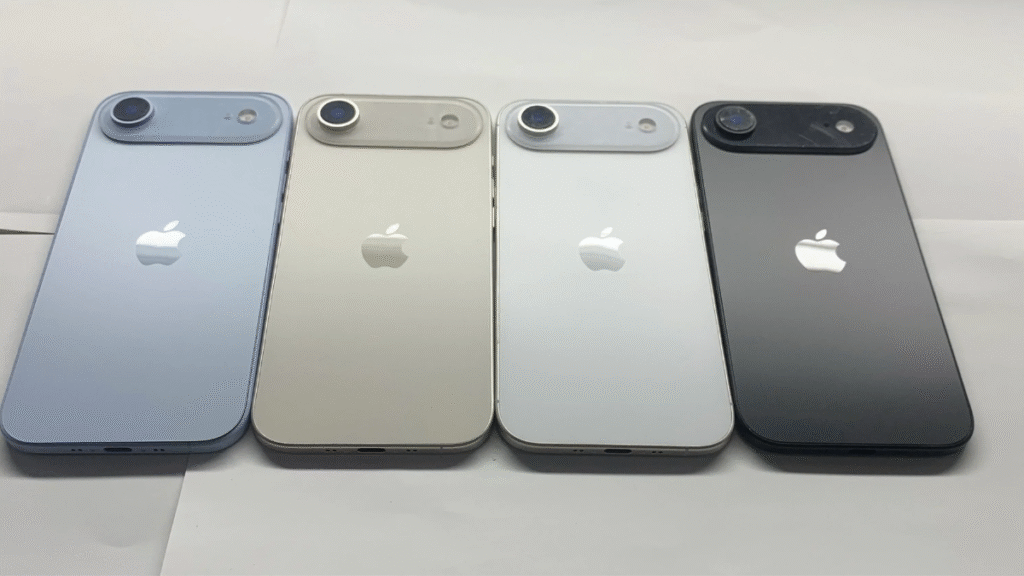
1. Camera: A True Photographer’s Dream
The iPhone 17 Air comes with a 48MP Fusion camera system, capable of shooting 24MP photos by default. Apple has packed in multiple focal lengths (26mm, 28mm, 35mm, and 52mm), effectively giving users “four lenses in their pocket.”
Other highlights include:
- 2x Telephoto zoom for professional close-ups.
- Next-generation portraits powered by Apple’s AI algorithms.
- Action Mode for sports and fast movement.
- Dolby Vision 4K60 recording with cinematic quality.
Selfie lovers aren’t left behind either—thanks to the Center Stage front camera, video calls and vlogs are smarter and more dynamic.
2. Performance: A19 Pro Chip
At the heart of the device lies the new A19 Pro chip, designed for blazing speed and efficiency. Combined with Apple Intelligence (AI), it promises smarter photography, faster multitasking, and seamless app handling.
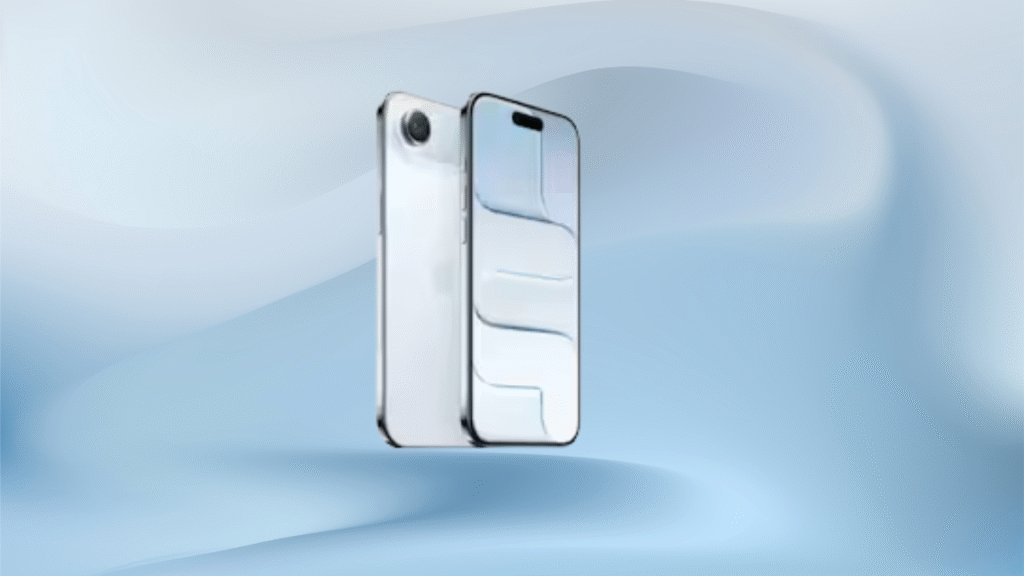
3. Durability Redefined
Apple claims the Ceramic Shield 2 offers 3x better scratch resistance on the front and 4x stronger crack resistance on the back compared to older iPhones. This makes the iPhone 17 Air one of the most durable premium smartphones on the market.
4. Display & Battery
The 6.5-inch Super Retina XDR display now supports ProMotion up to 120Hz, delivering smooth scrolling and vivid detail. Paired with all-day battery life, the phone ensures power users can enjoy high-performance tasks without constant charging.
5. Audio & Video Experience
The device also features Audio Mix with Spatial Audio, turning movies, music, and calls into immersive experiences. Content creators will especially appreciate dual capture recording, letting them film from front and back cameras simultaneously.
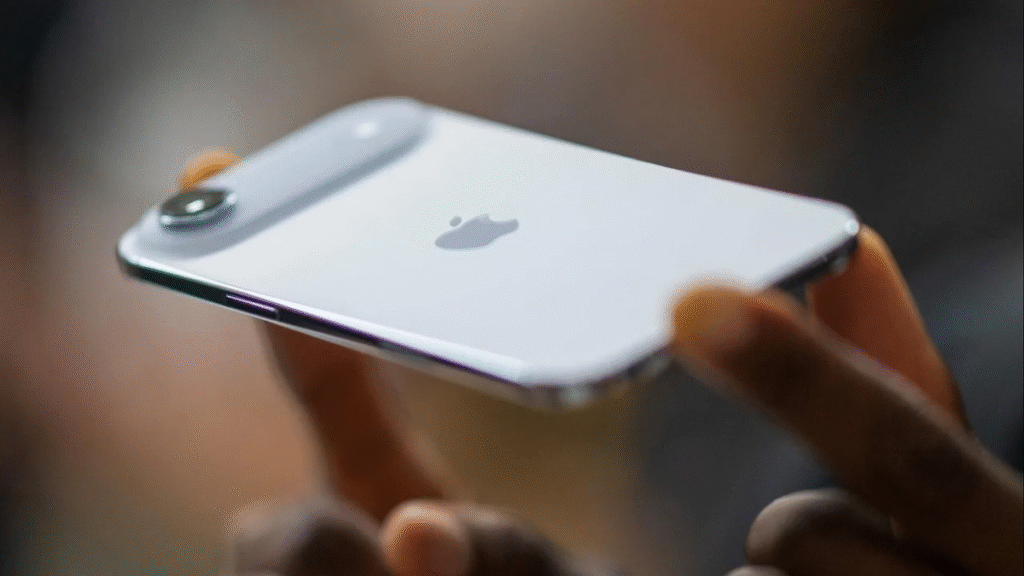
6. Sustainability with Style
For the first time, the iPhone 17 Air uses 80% recycled titanium, aligning with Apple’s environmental goals without compromising design.
iPhone 17 Air Price in USA
The iPhone 17 Air is expected to start around $899 for the base model (128GB) and may go up to $1,199 for higher storage variants. Apple aims to position this device between the standard iPhone 17 and the iPhone 17 Pro models.
Final Verdict
The iPhone 17 Air isn’t just thinner—it’s smarter, stronger, and more creative. With the perfect balance of design, performance, and eco-friendly innovation, this phone is likely to be one of the biggest upgrades in recent iPhone history.
-

 Entertainment1 week ago
Entertainment1 week agoAlyssa Milano removes breast implants says she finally feels free and authentic
-

 Technology News1 week ago
Technology News1 week agoChina opens Shanghai digital yuan hub to rival US dollar but here’s the bigger plan
-

 Entertainment6 days ago
Entertainment6 days agoDolly Parton delays Las Vegas concerts by nine months citing health challenges but promises unforgettable return
-

 Entertainment6 days ago
Entertainment6 days agoZoey Deutch engaged to comedian Jimmy Tatro after 4 years of dating with romantic beach proposal
-

 Sports4 days ago
Sports4 days agoTottenham’s Champions League wake-up call… why Spurs must stop looking like a Europa League side
-

 Technology1 week ago
Technology1 week agoGoogle shocks crypto world with $3B deal for Cipher Mining stake but here’s the twist
-

 Politics1 week ago
Politics1 week agoBarack Obama slams Trump administration over Tylenol autism claim calls it violence against truth
-

 Entertainment3 days ago
Entertainment3 days agoSurvivor Season 49 episode 2 shocker Kele tribe loses again and fans stunned by who went home




























